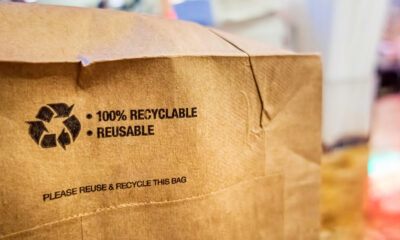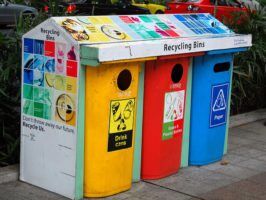Environment
Retailers to help reduce electronic waste
The European Parliament has passed legislation that should reduce the number of electrical items that end up in landfill sites. Charlotte Reid has more.
Revisions to the WEEE directive (Waste, Electrical and Electronic Equipment) are set to encourage more people to recycle their electrical waste.
 The European Parliament has passed legislation that should reduce the number of electrical items that end up in landfill sites. Charlotte Reid has more.
The European Parliament has passed legislation that should reduce the number of electrical items that end up in landfill sites. Charlotte Reid has more.
Revisions to the WEEE directive (Waste, Electrical and Electronic Equipment) are set to encourage more people to recycle their electrical waste.
A number of measures that passed through the European Parliament will gradually be introduced to increase electronic waste recycling. From 2016, EU member states will have to collect 45 tonnes of electronic waste for every 100 tonnes put on sale in the previous three years. By 2019 the target must be 65 tonnes.
In a statement, environment commissioner Janez Potočnik said, “The European Parliament has given a great boost to this policy […] I hope this will encourage some member states to be more ambitious, and meet the new targets even sooner than this deadline”.
Another part of the revisions to the WEEE directive is that people will be able to take small items like mobile phones to be recycled at large shops that sell electrical items, even if they do not buy a replacement.
Bob Gordon, head of environment at the British Retail Consortium, says the changes are a “sensible way forward”. He added, “Retailers recognise the importance of recovering valuable resources such as those in electronic equipment and this approach should improve greater recycling rates”.
People are already showing that they are interested in the possibilities of recycling. There has been a growing trend in usage of websites like Mazuma Mobile and Envirofone, where people can recycle their phone in exchange for money. In 2009 searches on the internet for mobile phone recycling trebled – which shows promise.
Gordon is pleased that the responsibility of recycling electronic items is on “specialist electronics retailers and larger out of town stores”. Otherwise, he said, “It would not have been appropriate to place a requirement on smaller retailers, who do not have the space to collect and store waste electronics in store”.
Potočnik said, “Proper treatment of WEEE is important to prevent harm to human health and the environment, and its systematic collection is the precondition for professional recycling of the valuable raw materials like gold, silver, copper and rare metals, contained in our used TVs, laptops and mobile phones”.
Last year, the Government’s waste adviser WRAP released a report that said almost a quarter of electronic waste thrown out each year could be reused and was a multi-million pound business opportunity.
However, Gordon does not want retailers to be solely responsible for recycling electronic waste. He said, “Whilst it is a good thing for the consumer that they will have greater opportunity to recycle their waste electronics, we cannot rely on this avenue alone”.
He added, “Rather than now expecting retailers to take sole responsibility to increase recovery of waste electronics, it is important that we build on the substantial progress made to date, so that in store collection points complement council recycling centres”.
Retailers should not have to take full responsibility when it comes to making our planet sustainable. There are many other ways that you too can help make tomorrow as blue and green as it was yesterday.
Other avenues to explore include changing your shopping habits and buy the most environmentally friendly products to begin with, we recommend checking out the Ethical Superstore. You could also consider investing in an environmental company. Just talk to your IFA to find out more. If you don’t have one the use our online form and we’ll put you in touch with a specialist ethical adviser.
Photo: CP


 Features11 months ago
Features11 months agoEco-Friendly Cryptocurrencies: Sustainable Investment Choices

 Energy11 months ago
Energy11 months agoThe Growing Role of Solar Panels in Ireland’s Energy Future

 Energy10 months ago
Energy10 months agoGrowth of Solar Power in Dublin: A Sustainable Revolution

 Energy10 months ago
Energy10 months agoRenewable Energy Adoption Can Combat Climate Change





























